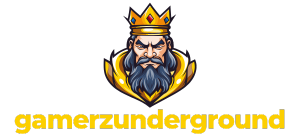So, you’ve decided to plunge into the exhilarating world of game development, huh? Well, grab your digital toolkit, because choosing the best language for game development is crucial. Like picking the right frying pan for a gourmet meal, the right programming language can make or break your game. In this guide, we’ll unravel the mysteries surrounding game development languages, helping you dodge the rookie mistakes and lead you to the promised land of pixel perfection with a dash of humor.
Table of Contents
ToggleOverview Of Game Development Languages

When it comes to game development languages, the choices can feel overwhelming. There’s a smorgasbord of languages out there, each boasting unique features and benefits. The main languages used in game development can be roughly categorized into two groups: high-level languages, which are easier to read and write, and low-level languages, which provide more control over hardware and performance.
Most game developers gravitate towards languages that not only enhance performance but also simplify the coding process. A great language facilitates quick changes and iterations during development and allows for smooth graphics rendering, solid gameplay mechanics, and complex systems that keep players coming back for more. In essence, the right choice influences your game’s performance, scalability, and overall player experience.
Factors To Consider When Choosing A Language
Selecting the best language for game development is like choosing a taco topping. It’s all about personal preference, but there are several key factors to mull over.
- Game Type: The kind of game being developed plays a pivotal role. Are you crafting a 2D platformer or a 3D open world? Some languages shine in specific types of game mechanics.
- Target Platform: Consider whether you’re developing for desktop, mobile, or web platforms. Certain languages work better for specific platforms.
- Development Speed: How quickly do you want to bring this game from concept to reality? Some languages enable rapid prototyping, allowing for quicker iterations.
- Performance Needs: If your game demands high performance, you may lean towards languages that offer more control over system resources.
- Community Support: A language with a vigorous developer community can be a game-changer. Community-provided resources, libraries, and forums are crucial for learning and troubleshooting issues.
Top Programming Languages For Game Development
Exploring the world of programming languages doesn’t have to feel like pulling teeth. Let’s break down the top contenders that could lead your gaming masterpiece to glory.
1. C++: The Industry Standard
C++ reigns supreme as the go-to language for high-performance game engines, and it’s the backbone for many popular gaming frameworks. It offers developers extensive control over system resources, enabling the creation of visually stunning graphics and intricate game mechanics. Many established AAA games were born from its syntax. It’s a must-learn for serious game developers.
2. C#: Versatility And Unity Development
If you’re diving into the world of Unity, C# is your trusted sidekick. This language offers a perfect blend of ease of use and robust features. With its object-oriented programming capabilities and access to a vast array of Unity’s tools, developers can create immersive 2D and 3D experiences quickly and efficiently.
3. Java: Cross-Platform Opportunities
Java flaunts its cross-platform capabilities like a peacock in style. If your dream involves reaching gamers across diverse devices, Java comes in handy. While less popular for hardcore gaming, its stability and extensive libraries can be incredibly advantageous for mobile and browser-based games
4. Python: For Beginners And Rapid Prototyping
Ah, Python, the beloved language of beginners and experienced developers alike. Known for its readability and simplicity, Python is perfect for rapid prototyping and game development education. With libraries like Pygame, budding developers can bring their ideas to life without getting bogged down by complex syntax.
5. JavaScript: Powering Web-Based Games
In today’s internet-driven world, JavaScript holds a special spot for web-based games. It’s the backbone of many games that run in browsers, thanks to frameworks like Phaser and Three.js. If you imagine creating games that reach millions without needing installation, JavaScript is your golden ticket.
Emerging Trends In Game Development Languages
As technology evolves, so do development trends. Game developers are continuously seeking more efficient tools and languages.
One emerging trend is the integration of AI and machine learning into gaming, requiring languages that can handle complex algorithms. For instance, some developers are experimenting with languages like Rust, which offers enhanced memory safety, making it ideal for AI-heavy projects. Also, there’s a growing interest in scripting languages like Lua, which allows for easy game modifications without the need for recompilation. This flexibility appeals to indie game developers aiming to iterate swiftly.


